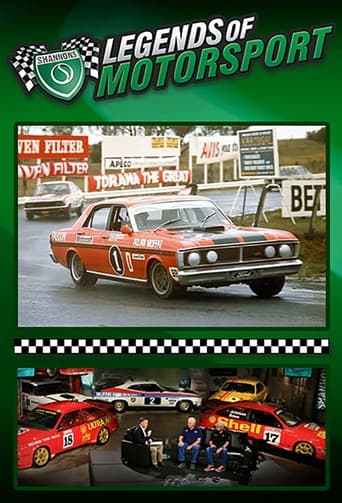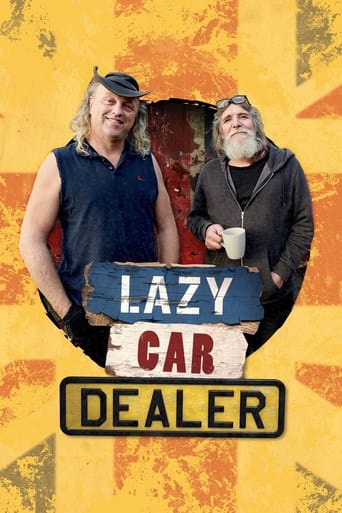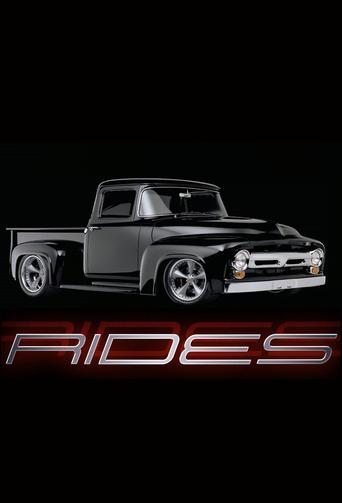
Rating:
10/10 by 1 users
BIG CFM Shootout
Freiburger's 582 big block Chevy is back! And this time we're using it to shoot out 1050, 1250 and 1450 cfm Dominators. When you're flirting in that 1,000-hp range, how much difference do those extra cfms make, and how much does the tune change between them?
Writing:
Release Date:
Mon, Nov 23, 2015
Country: US
Language: En
Runtime: 18
Country: US
Language: En
Runtime: 18
Season 8:

Hot intake air temps are bad, and cold IATs are good, right? But how bad is bad, and how good is good, especially in a boosted application? To find out, the guys explore the benefits of an air-to-air intercooler in terms of power and detonation resistance. They also test out external CO2 foggers that keep the intercooler extra cool.

Our testing has repeatedly shown that carbs make more peak power than EFI, and our explanation is based on the fuel's ability to cool the incoming air on its way to the head. Multipoint injection just can't do that. Or can it? We move fuel injectors up the intake manifold runners to see if the extra distance of suspended fuel makes extra power.

Exploring the effects of different sized water tanks and their ability to keep the intake charge colder longer; air-to-water intercoolers make power by absorbing the heat of the intake air into the cool of the IC's water.

The crew compares 90 mm and 105 mm forward-facing throttle bodies against one another, and then to 2000 cfm worth of top-mounted, dual quad-style throttle bodies, all atop a fuel-injected, 700-hp LS7.

Call it a velocity stack, a radiused entry, or even a salad bowl, the bellmouth is designed to direct and smooth the airflow into the throttle body, creating a more efficient airflow. But does it make power? We'll answer that very question for both N/A and supercharged versions of our 363ci small-block Ford.

The reputations of sequential and batch-fire injection styles each carry when it comes to overall power; the guys explore that question, tunability, what it takes to make the switch, and all of the pros and cons.

Cam specs are cam specs, right? Wrong! The guys show you how three seemingly identical cams can behave very differently. It's called cam-lobe intensity, and it's all about the shape of the lobe between the base circle and the nose. So what's the difference between a standard, a high-intensity, and a low-shock cam? Which one is right for you?

The crew examines the power of different types of spark plugs, such as ones with fancy metal tips or extra ground straps, and explains the results of gapping them bigger or smaller.

The guys explore how the length of header primary tubes can affect the power curve, and look at how engines expel exhaust, including the negative pressure wave that pulls burnt gases from the cylinder and where the power occurs.

The bigger the cam, the higher the curve, right? Well, there's some truth to that, but what about when you're talking about low-end torque? The guys explore the world of usable, cruise-able, tow-ready torque curves with three of the smallest camshafts they've ever tested. But how small is too small? Come along as they find out.

Steve Dulcich has posed the theory that headers don't matter nearly as much when paired with a small cam as they do with a larger cam. To find out, the guys look at the percentage of power gained on our Ultimate Average 383 when using factory-style manifolds, shorty headers, and full-length headers with a tiny 200/206 cam, and then again with a meatier 230/236 stick. Does a smaller cam benefit less from a header upgrade?

Listen up, street drivers of big-block Chevys, this is the shootout for you! With so many average power, cruiser level, and even bone stock BBC's roaming around, this one is long overdue. From high rise to low rise, square bore and spread bore.

With so many oil weights and combinations on the market, the crew sets out to show how different weights behave, perform and react inside your engine under operating conditions. While it only scratches the surface, expect a primer on oil weights and how differing weights affect horsepower, pressure and resilience to temperature.

Why does colder fuel make more power? How can you consistently keep fuel temps down, and what difference will it really make? All these questions, and more, answered this time on Engine Masters.

We've all run the standard 14-inch round filter in the past and wondered every time if there's any difference between them. Does cotton gauze make any more power than a paper filter, or is it just a more expensive filter? Is there even any difference between brands?

Can your pushrods or valve springs affect your power production, even when valve float isn't a problem? This promises to be an eye-opening episode of Engine Masters, as we test varying combinations of valve spring and pushrod strengths in our 514 big-block Ford.

The spray-bar style nitrous plate has been the standard forever, which begs two questions: can it be improved upon, and does it even need to be? The guys put the tried-and-true spray-bar style up against the newfangled perimeter-discharge style to see how each delivery method affects the tune of the motor.

We've done an intake manifold comparison on nearly every American big and small block platform, and at long last it's big block Ford's turn. We're shooting out single planes AND dual planes on a healthy street/strip 514ci combo that should relate to what a lot of BBF guys are running.

Whether it comes from exhaust, transmission or any of your other heat-generating components, isolating and separating heat can make a hot ride comfortable, and even a hot intake charge cooler. We're testing header wraps and panel heat shields, so come see how -- and how not -- to keep your cool.

Standalone air/fuel ratio gauges have changed the game when it comes to tuning carbureted engines, with a world of possibilities and pitfalls when using them. We start by comparing five off-the-shelf units, then move on to showing how things like placement, air leaks and even dead cylinders can affect your readings, your tuning decisions, and ultimately your power levels.

A 200-hp shot of nitrous is really no big deal as long as you do it right, so we show you how to do it right. We test a long-told hose-length theory as well as a long-proven nitrous-controller practice to illustrate how softening the "hit" of the nitrous can help you control the power and keep your motor in one piece.

Freiburger's 582 big block Chevy is back! And this time we're using it to shoot out 1050, 1250 and 1450 cfm Dominators. When you're flirting in that 1,000-hp range, how much difference do those extra cfms make, and how much does the tune change between them?

Holley recently debuted the second iteration of its throttle body EFI system, and we're here to see if it's any better than the first version and any better than the carburetor we so dearly love. We'll walk you through the installation, the setup and the benefits. Most important, we'll show you the results.

Does a 300 shot of nitrous sound like a lot, or like you're just getting started? That's one way to tell if you should be running a plate or a port system, and the guys walk you through each system, how much power you can add through each, and the jetting differences between them.

We're diving back into the intricacies of camshaft grinds. This time, we're exploring not just split-duration cams, but how larger and larger splits affect the power curve. Will it make any difference at all?

We all know there's invisible voodoo that can make or rob power in an exhaust system. The guys explore the merits of stepped headers, whose primaries step up in diameter, and merge collectors, which create an intentional restriction in the collector, against good old-fashioned, no-frills headers. Do the frequency-tuning claims of the steps and the velocity-enhancing merges make a difference to your motor? Absolutely!























